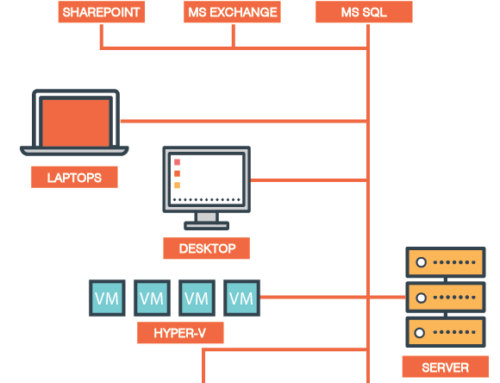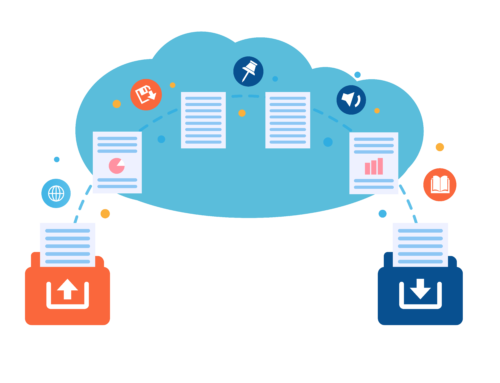What Do We Mean By Cyber Security?

No matter the size nor scope of your business, network security is no joke. Malicious software is not only growing in prevalence, it’s getting more sophisticated. As such, even the biggest businesses and most established of enterprises are at risk of letting viruses, hackers and other malicious actors gain unauthorised access to their sensitive information.
Consider all of the high-profile and sensitive data you store on your customers, clients and users 24 hours a day, seven days a week. From credit card details to identifiable information such as names, address and contact details, your clients and customers rely on you to safeguard their data.
However, there is still some confusion over what cyber security actually is. How can security professionals help to protect your network, your data, and your daily running? How can you keep cyber security incidents to a minimum, and restore confidence in the people who depend on you the most?
As experienced cyber-security professionals, we are on hand to ensure that your operations not only run smoothly, but that you can easily bounce back with an autonomous cyber-security framework that’s always ticking away in the background. Let’s dig deeper into what cyber attacks actually are, and how cyber-security solutions can actively help you.
Cybersecurity Definition
The very definition of cybersecurity is simple – it’s protecting companies and individuals against different types of malicious attack against their devices and their data.
Cybersecurity can help to secure devices and platforms, for example, against unauthorised access to certain accounts and services that are otherwise protected by passwords or biometrics.
Cybersecurity is used not only in business and in large-scale enterprise, but at home, too. A simple antivirus program and firewall application, for example, is a rudimentary type of cybersecurity.
Anything that acts as a line of defence against malicious code or unwanted intrusion, for example a ransomware attack, phishing attacks or outright stealth, is classed as a cyber security program.
However, when it comes to the security culture of a business or enterprise, there needs to be enhanced protection. For example, simple application security is not enough. To protect a business, its data and the interests of its customers, there needs to be a clear plan in place to ensure security flaws are sealed – and that a company is always ready to bounce back from any potential concerns such as data leaks and wipes.
What Are Cyber Threats? What Constitutes a Cyber Attack?
Unfortunately, cyber attacks and cyber threats come in many different forms. Attack vectors can vary in terms of target, scope and intention. Some attempts, such as a service attack, may seek to bring the operation of a business to a standstill. Others, such as customer attacks, may seek to retain and sell sensitive data belonging to registered users, or may steal money and/or sensitive details outright, for use in large scale fraud.
Cyber attack trends are always changing. You may remember when the NHS was targeted by cybercriminals… The idea that malware attacks, for example, simply occur out of greed and stealth alone, is very outdated. Many cyber criminals may chose to stage persistent threats as a result of political or ideological motivation. Others may even choose to target technology security and advanced cybersecurity strategies for sport! Regrettably, financial gain is no longer the central modus operandi for the average hacker or criminal.
That’s why, as a business or enterprise owner, you need to be sure you have more than just a handful of security patches ready to go at any one time. It’s essential that you have the backing of a talented firm who can help you bounce back from unwanted intrusion and even from data loss through natural disaster.
Types of Attacks to Look Out For
As mentioned, it’s important that any form of operational security is wise to evolving threats – no matter what they may be. Some attack mobile devices, others seek to bring down entire networks – in any case, your endpoint security must be ready to analyse threats and bounce back from whatever is thrown at you.
Here are just a few known threats and types of attack that are commonplace – but still highly detrimental if you have no security controls in place.
Malware
There are many different types of malware. This is malicious code that can take the form of viruses, rootkits, trojans, worms, spyware and more. Ultimately, malware is intrusive – it gains unauthorized access and can effectively lock you out of your operation. A key example, of course, is ransomware – that can demand you pay money to regain access to your services.
DDoS Attacks
Distributed Denial of Service attacks, otherwise known as DDoS, overload servers to bring down corporate websites and online platforms. These tend to be high-profile – however, they can bring down even the biggest websites, let alone those belonging to small businesses.
DNS Attacks
Domain Name System attacks hijack web domains to redirect your visitors. This means that a visitor to your standard web address may find themselves relocated to a malicious site – which could lead to problems for their own PCs and mobile devices.
Jacking
Jacking comes in various forms – crypto jacking, for example, sneaks code into your network to start farming cryptocurrency through illegal software. This can drain your resources. What’s more, form jacking is a type of illicit attack that hijacks users who may be completing web forms and surveys you have created.
Man in the Middle Attacks
Man in the Middle attacks occur when a hacker or criminal intercepts communications between two specific parties – for example, your team and an end client. The endgame for the man in the middle is, of course, to steal sensitive data – and you may never know they are listening in.
Why is Cyber Security So Important?
Any legitimate company offering a service to the public – or with a duty of care in any shape or size – must ensure they protect sensitive data at all costs. Human error can occur from time to time – but without legitimate software backing up your team, you may be at risk of losing more than just money alone.
Critical systems and financial systems, of course, are those that standard to benefit most from cybersecurity. Financial systems hold data such as credit card details and payment scheduling for clients and customers. Allowing unauthorized access to these systems may result in financial loss not only to your business, but also to clients who depend on you.
A strong cybersecurity culture is important not only to help protect corporate revenue, but also to ensure that your customers and clients can retain confidence in your brand. If you only have a few elements of cybersecurity in place, you may be at risk of losing more than money alone. Therefore, it really does pay to ensure you have cyber security analysts carefully monitor your business operations.
What You Can Do to Improve Your Cyber Security
Implementing new cyber security resources and cyber security management doesn’t have to be complex or costly. Ultimately, the time taken to enhance your protective strategies will ensure cyber security breaches remain fantasy – and that you can keep your data safe under leading, trusted electronic security protocols.
It is no longer enough to simply install a basic antivirus suite and occasionally update your firewall. If your business is growing, then it stands to reason that you must have device security processes in place, and that you regularly adopt cyber security risk assessments to ensure you are protected against evolving threats.
Experts working in the cyber security profession offer more than simple insight into what works, and what doesn’t. A thorough electronic information security plan will ensure that your existing systems are protected, that you offer your customers and clients the confidence they demand, and that your enterprise is ready to bounce back from any potential issues that may arise in the near future. Whether it’s IBM security or otherwise, now is the time to get in touch with professionals who can oversee your electronic systems around the clock.
Ready to React
All computer-based systems are at risk of data loss and cyber crime. It’s an unfortunate fact of the modern age. Continuous, real-time monitoring will ensure that you are ready to react to even the nastiest of malware attacks without disrupting your business.
Continuous monitoring, with the help of leading cybersecurity personnel, will ensure that you never have to worry about managing a security program on your own merits. Cloud security can be available on demand at any time, with cyber security skills ready for you to tap into behind the scenes at any time.
We recommend security by design – your professional network should have security standards woven into your infrastructure from the get-go. Digital attacks don’t just happen to other people – they are real, they are here, and they could cause you a lot of hassle, time and money.
Ongoing testing and deployment of cyber-security measures will ensure that you are ready to scale up and provide additional support to customers without fearing the worst.




